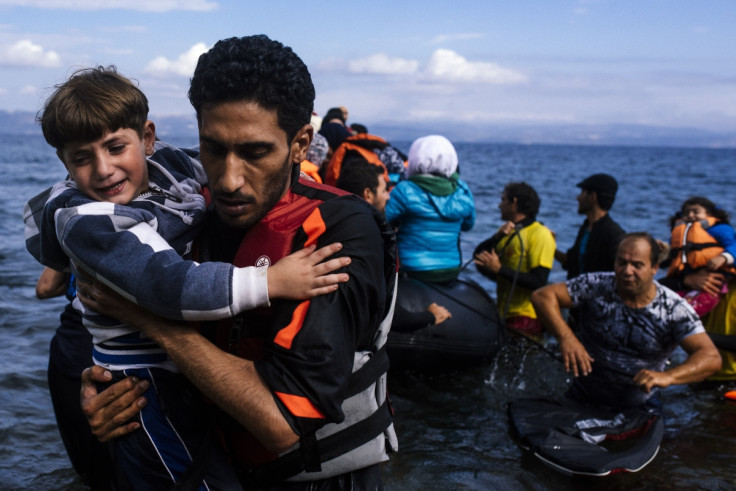EU migrant crisis: More than 3,000 deaths in Mediterranean as arrivals surpass 700,000

A record 710,000 migrants reached European shores by boat since the beginning of the year, while another 3,000 died at sea, authorities said. The number of arrivals in the first nine months of 2015 has been more than two-fold higher than in the whole 2014, according to the EU border control agency.
Frontex said Greece's eastern islands, and especially Lesbos, have faced the highest influx, with 350,000 people crossing from Turkey from January to September. Another 129,000 were rescued off Italian shores over the same period, the European Union agency said.
"Urgent assistance is needed, especially for Greece and Italy, to help register and identify the new arrivals," said Frontex executive director Fabrice Leggeri. "I do hope we receive adequate contributions which will show the true spirit of European solidarity."
Most of those rescued by Greek authorities were Syrians, while in Italy, the most represented nationality was Eritrean, adding that favourable weather conditions made summer months the busiest in terms of arrivals, with 190,000 people detected at EU borders in August and 170,000 in September.
Crossings are expected to reduce as winter approaches. In September, the number of would-be-refugees reaching Italy from Libya was at 12,000, half that recorded the previous month, although the slowdown was partially fuelled by a shortage in boats affecting smugglers.
Bad weather also threatens to increase 2015's already staggering death toll in the Mediterranean. The International Organization for Migration (IOM) said at least 3,103 people have drowned trying to reach Europe so far this year. A vast majority of deaths occurred in high seas between Libya and Italy, which are divided by a considerably wider stretch of sea that that separating Turkey form Greece.
Speaking in Geneva, IOM director general William Lacy Swing said not only Europe but the entire world was facing the largest migratory wave in more than seven decades. "Today, more people have been forced to migrate than at any other time since the Second World War, namely some 60 million," he said. "As a group, those forced to migrate constitute a population about the size of France's population."
Swing criticised the hard-line approach to the migration crisis taken by some countries, saying defensive measures such as the closing of borders or hardening visa regimes were only pausing more people into the hands of human traffickers.
"It is entirely within our capacity to weather this storm, however turbulent or long," he said, adding migration was "not a problem to be solved, but a reality to be managed".
© Copyright IBTimes 2025. All rights reserved.






















